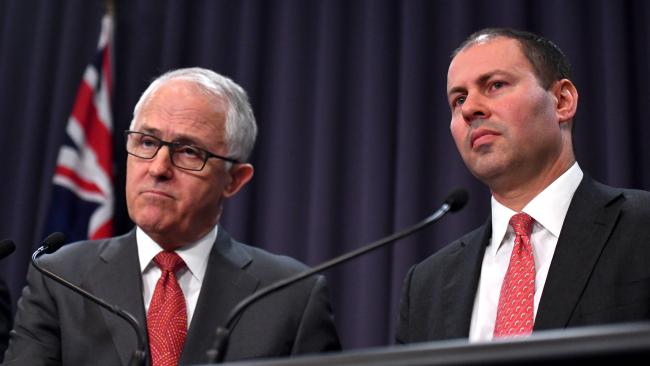Australia's Ongoing Role for Coal

By Rachel Baxendale
August 13, 2017 - Australian Energy Minister Josh Frydenberg says coal will continue to have a place in Australia’s energy mix, but the market will determine the extent of that role into the future.
Amid reports that energy company bosses told the government in Canberra this week that the market isn’t interested on new coal investment, Mr. Frydenberg said existing coal-fired power stations remained the cheapest generators of energy.
Mr. Frydenberg said that even under Chief Scientist Alan Finkel’s proposed baseline target of 0.6 tonnes of carbon dioxide per megawatt hour of energy, coal would represent 50 percent of Australia’s energy mix by 2030.
He said new coal plants also had a role to play but conceded energy retailers had this week told the government that the market would determine the extent of that role.
“They made it clear that the market is transitioning and we’re seeing a greater focus on renewables and we know that, but once we have the level of investment certainty that we all want for our energy system going forward then the market will be best-placed to work out the role of a high-efficiency, low-emissions coal-fired power plant, or another form of gas generator or indeed a form of renewables with storage,” Mr. Frydenberg told Sky News.
Asked whether there was a contradiction in saying that the government wants new coal plants but the market will decide, Mr. Frydenberg said the government stood ready “to ensure the best possible outcomes in the marketplace if the market itself can’t deliver that.”
“We have written to the Australian Energy Market Operator to actually tell us what is needed in terms of dispatchable power, so that has been our clear position for some time,” he said.
“Let’s wait and see what the advice of the market operator is as to what type of generation we need in the system. A (new coal) HELE plant does need to be considered, just as thermal gas generation does, just as renewables with storage does.”
Carefully Considering Clean Energy Target, but 'No Rush'
Asked whether the Coalition would go against the energy market if the market opposed new coal investment, Mr. Frydenberg said it was clear the market was not working “as first intended”.
Mr. Frydenberg said there was no rush for the government to commit to Dr Finkel’s Clean Energy Target, but the government was considering the issue carefully.
“It’s too early to say what will be the product of our discussions and consideration of the Clean Energy Target both at cabinet and then at the partyroom level, other than to say I think we do need a mechanism that integrates energy and climate policy,” he said.
“Dr. Finkel did focus obviously on a long term trajectory for reducing emissions and he also produced a model which would lead to lower prices over all.
“What I’m focused on is the outcomes, rather than necessarily just the process, and the outcomes for us are affordability and stability at the top of the agenda while we transition to a lower emissions future. You don’t hear the Labor Party saying that affordability is their number one issue.”
Focus On Getting Prices Down But 'No Silver Bullet'
Asked how the government intended to get energy prices down, Mr. Frydenberg said there was “no silver bullet”, and that there were three main causes of high energy prices, namely high gas prices fuelled by the export market and state moratoria on exploration, a lack of regulatory certainty, and the closure of major coal-fired power stations such as Hazelwood in Victoria and the Northern Power Station in South Australia.
Mr. Frydenberg said the restrictions the Turnbull government had placed on the gas export market should help increase supply in the domestic market.
“The fact that the Prime Minister talked tough with the LNG companies is already starting to have a flowthrough effect, so we’ve seen the spot price for gas come down from the highs at the start of the year and that will flow through in the form of lower prices,” he said.
“When it comes to network charges, which make up around 50 percent of the household bill, the returns for those companies was averaging around 10 percent when Labor was in office. “We’ve now got that down over 2016 to just above 6 percent, so that will have a significant and positive impact.”
Mr. Frydenberg said Mr. Turnbull’s meeting with energy bosses this week would also help.
“The Prime Minister called in the energy retailers and spoke very strongly to them about the need for them to empower consumers to make the choice as to the best offer available to them in the market,” he said.
“We got some significant commitments out of those retailers. We saw, for example, over 50,000 Australians go onto the website in the last couple of days just to start comparing the offers that are available.
“If we can get clearer information, better information and more comparable information then I think customers can, as the AER (Australian Energy Regulator) has said, benefit by more than $1000 simply by moving retailers or contracts.”

Prime Minister Malcolm Turnbull (left) and Minister for the Environment and Energy Josh Frydenberg.

